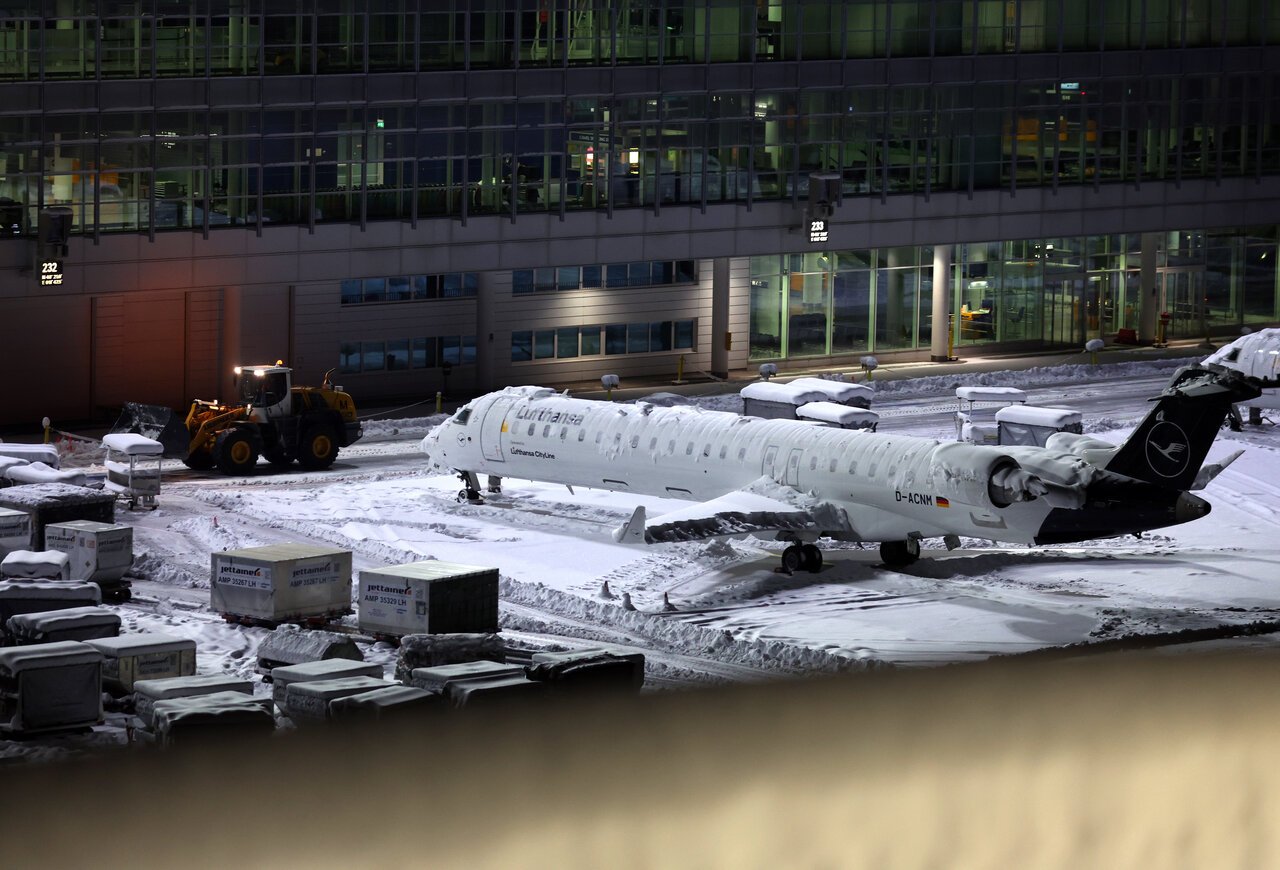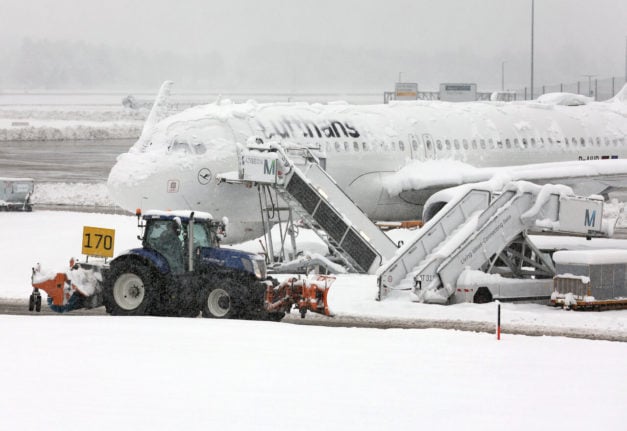Southern Germany has been hit by severe winter weather in the last days, disrupting travel across the region.
On Tuesday morning, Munich airport did not open after freezing rain overnight caused a build up of ice on all surfaces.
At least 150 take-offs and 160 landings are affected, with flights completely grounded in the morning.
The airport was due to open at 12noon – but bosses warned that there would likely be more cancellations throughout the day.
“It can be assumed that a large number of flights will have to be cancelled later in the day for safety reasons,” a statement from the airport said.
⚠️Announced freezing rain during the night: air traffic will be suspended until 12 noon on Tuesday, December 5
On Tuesday, 5.12. there will be no take-offs and landings from the start of operations at 6 a.m. until 12 noon. pic.twitter.com/R8SvSeNqJD— Munich Airport (@MUC_Airport) December 4, 2023
Airport staff were using the first half of the day to de-ice the tarmac.
Airline giant Lufthansa is currently expecting restrictions on air traffic in Munich well beyond Tuesday.
It is believed that there will be significant disruption for the rest of the week, a company spokesperson told DPA.
Customers with booked tickets to or from Munich have the opportunity to cancel or change their ticket free of charge. This applies to tickets with a travel date up to December 9th.
Passengers are strongly advised by airport bosses to contact their airline before travelling to the airport to inquire about the status of their flight.
READ ALSO: How extreme winter weather in Germany could affect your travel plans

1,500 passengers stranded in Munich
Due to the restrictions on air traffic caused by the extreme winter weather in Bavaria in recent days, around 1,500 passengers have been stranded in Munich since Friday, a spokesperson said.
Munich is the second largest German airport, and an important hub for international air traffic so many international passengers are affected.
On social media, passengers complained that connecting flights had been cancelled several times.
When asked by German media outlet Tagesschau, Munich airport confirmed that passengers had spent the night in the terminals, “including some more than once”.
Camp beds were reportedly being issued to passengers, along with drinks and food.
Some social media users complained about Lufthansa, stating that they had been stuck in Munich for days, sometimes without luggage.
“Lufthansa is providing meals and hotel rooms free of charge to passengers whose onward flight is cancelled due to the weather situation in Munich,” a statement from Lufthansa said.
Passengers also have the option of booking a hotel room themselves and the costs would be reimbursed.
“Nevertheless, several hundred passengers are staying overnight in the terminal,” a Lufthansa spokesperson said in the statement. “Either because they don’t have a visa to enter the country or because they are not taking up the offer to book a hotel room.”
Restrictions in rail travel
Travel from Munich Hauptbahnhof (main station) is also still severely restricted.
Deutsche Bahn expects disruptions in Bavaria and nationwide, especially in Baden-Württemberg and towards Switzerland, until the middle of the week.
Long-distance trains from Munich to Salzburg, Innsbruck and Zurich will not run on Tuesday, according to Deutsche Bahn. Regional trains south of Munich are also cancelled.
Travellers have been asked to postpone non-essential journeys until at least Wednesday.



 Please whitelist us to continue reading.
Please whitelist us to continue reading.
Member comments